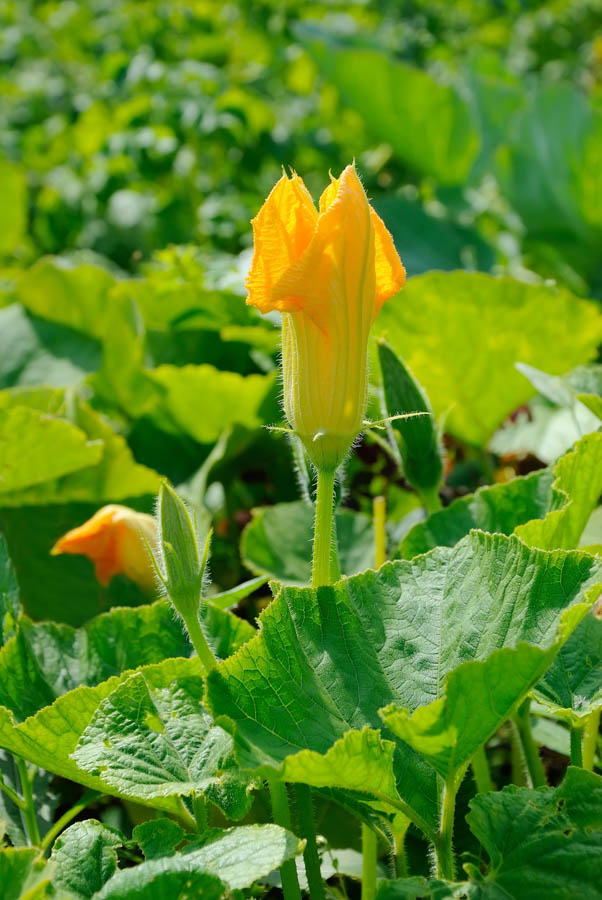GardenZeus Quick Tips: Pollination Issues with Zucchini and other Summer Squash

Summer squash, including zucchini, are monoecious, meaning that a single plant produces both male and female flowers. Pollination is critical for squash plants to produce fruit.
It is normal for the first few blooms to fall off a squash plant. Early squash flowers are usually all male; no fruits will form from these flowers. If flowers continue falling off without forming fruit, or established plants drop female flowers and fail to form fruit, lack of pollination is usually the cause.


Male and female squash flowers are easily recognized with close observation. Male flowers tend to be on longer stems, and have only a stem at the base of the flower, while female flowers have a tiny immature fruit, which technically is the ovary, between the base of the flower and a shorter stem. Gardeners often assume the wrong gender for zucchini blooms. As GardenZeus expert Darren Butler has bravely clarified many times over the years, with zucchini blooms, unlike with humans, the flower with the tube is the girl.
Recognizing the gender of squash flowers is important because generally it’s best to harvest the male flowers for cooking and eating, as they will never produce fruits; and also so that you will not become overly concerned if male flowers drop without forming fruits. Male squash flowers are often produced at a rate of 3 to 4 times the number of female flowers. Leave at least one male flower for every 2 to 4 female flowers to allow for pollination, and otherwise harvest and eat many to most of the male flowers.


If female flowers or small fruit drop without maturing, you likely have a pollination problem; this is where the “bees” part of a zucchini birds-and-the-bees lesson comes in. Bees are primary pollinators for squash in home gardens; if you have a low or nonexistent bee population, you may have minimal yield with squash. Encourage bees by planting borage, nasturtium, rosemary, oregano, and other bee-attracting herbs and plants. It has been Darren Butler’s experience that squash blooms alone are not always a strong attraction for bees, but if they’re in the area collecting pollen and nectar from other flowers, bees will gladly pollinate squash.
If you’ve had low yields as a result of poor pollination when growing zucchini, try the zucchini variety Sure Thing, a parthenocarpic hybrid that produces fruit without pollination. For most varieties, if unable to attract bees or other pollinators, you may need to pollinate squash by hand. Use a small paintbrush to transfer pollen, or pick male flowers and rub the stamens onto the pistils of female flowers.
Zucchini will cross readily with most varieties of summer squash (Cucurbita pepo). Long distances between different summer-squash varieties or isolation is required to save seeds that remain true-to-variety across multiple plant generations. In the home garden, this is often accomplished by tying off flowers and hand-pollinating.
Don’t know your GardenZeus climate zone? Click here.
Other articles of interest:
Growing Summer Squash (Including Zucchini) in the California Home Garden